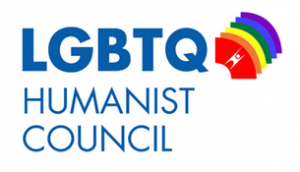LGBTQ Humanist Council: Honor Transgender Day of Remembrance on November 20th

Lucas McCahill of the LGBTQ Humanist Council—Baltimore Chapter shares the history behind Transgender Day of Remembrance and encourages all AHA Chapters and Affiliates to participate in supporting Trans rights.
The Transgender Day of Remembrance (TDOR) is a day recognized annually on November 20th when the Trans community and their allies gather together to remember those around the world that were victims of hate crimes and that had their lives taken from them because they were Transgender. This usually takes the form of a religious service, which is fine for some people but not always welcoming to those in the LGBTQ community and our allies that are not religiously affiliated and do not find comfort in religious rituals.
The Transgender Day of Remembrance started in 1998 to honor Rita Hester who was murdered on November 28, 1998 in San Francisco. Her death is what kicked off the “Remembering Our Dead” candlelight vigil in 1999 in that city. Sadly, like most Transgender people who are murdered, her case is still unresolved to this day. The people who have been taken from us that are on the lists that are read at these candlelight services may not have self-identified as Transgender but their gender expression may fall under this umbrella, so this includes crossdressers and people who do not dress under more conservative ideals of gender expression (whatever that should look like). For example, a woman with a masculine haircut and a butch walk might be on this list. I am one of these women, and I know people who dress like I do who have been attacked at night leaving clubs. Thankfully, those that I know have been able to walk away from these attacks, but we are not all so lucky.
Religion, which is often used in defense of Transphobia and the actions that go with it, is losing its grip on our society. But it is still here, and so we must still hold these gatherings. Religious or non-religious, as human beings we are often drawn to community to get through times of loss; this is why as humanists these sorts of gatherings can be appealing to us. I believe that, at these gatherings, supernatural preferences should be blurred and not be a focus. After all we are all human, and loss is hard for all of us.
For the first time, two American Humanist Association local groups are taking part in the Transgender Day of Remembrance and are working to make sure that religion is not the driving force in how we remember the names on these lists. TDOR takes place across the United States as well as in Canada and in parts of Europe. The Baltimore Chapter of the LGBTQ Humanist Council will have one of our founders, Hugh Taft-Morales (who is also a Humanist Celebrant) providing a voice for humanists this year here in Baltimore. The Western North Carolina Humanists (WNC Humanists) will be involved in their local event in Asheville as well.
This is great progress. As the humanist movement grows we need to be included in community gatherings that bring comfort to those who might be mourning the loss of a loved one who was a victim of a hate crime, such as those on the list of the names that are read at TDOR services, but might feel left out in the midst of all of the religious rituals that will inevitably take place. As humanists we are allies of the Transgender community, and even though we do not guide our daily lives based on a supernatural source, we still feel grief when anyone we love is no longer with us.
So as Humanists we should provide support for each other and take part in events like the Transgender Day of Remembrance. If you don’t see this happening in your community I encourage you to speak up and make your voice heard. You may be surprised to find that you are not alone. I attended a planning meeting for the TDOR event in Baltimore, and I was pleased to find that I was not the only humanist concerned about the religious tone at the event. In fact, the facilitator of the meeting here in Baltimore came out in the middle of the meeting as an atheist and thanked me for coming out because he thought that he was alone! After the meeting ended, a couple more people came up to me and thanked me for coming out about being a humanist because when they talked about their beliefs, they were often told that they were crazy. So, if you can come out and let people know who you are and what you believe, please do, so that they know that they are not the only one. If you live in Baltimore, Maryland or Asheville, North Carolina check out the event pages (LGBTQ Humanist Council—Baltimore Chapter and WNC Humanists) and we hope to meet you there. But if you are not in these areas, or are a leader of an AHA Chapter or Affiliate, and are interested in getting involved in the Transgender Day of Remembrance, please visit www.transgenderdor.org.
